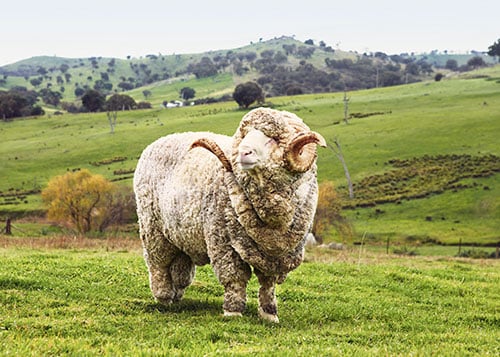All living things have basic needs that must be met in order to survive – food, water, shelter and air.
Students will all know what it feels like to be hungry and thirsty, but may not be able to identify air as a ‘need’ without guidance. Students also may be more aware of these basic needs if they have experience caring for a younger sibling or relative, pet or plants.
This lesson has been developed as an extension opportunity for an existing unit of work prepared by the Australian Science Teachers Association (ASTA) in partnership with Education Services Australia (ESA) — Needs of living things.
The following lesson can be taught as a stand-alone lesson or incorporated into the full unit of work mentioned above.
By allowing students to investigate the needs of sheep kept for wool production, this lesson aims to help students be more consciously aware of the basic needs of animals that rely on humans for survival, such as livestock, and the way humans support these needs.
By exploring a range of resources students will learn how farmers look after sheep to meet their basic needs. Students use what they have learned to create a paddock on a sheep farm and identify how they would meet the needs of their sheep.
Links with the Australian Curriculum
This Needs of sheep lesson links to all three strands of the Australian Curriculum: Science.
Science understanding | Biological sciences
Living things have basic needs, including food and water (ACSSU002)
Science as a human endeavour | Nature and development of science
Science involves exploring and observing the world using the senses (ACSHE013)
Science inquiry skills | Questioning and predicting
Respond to questions about familiar objects and events (ACSIS014)
Science inquiry skills | Planning and conducting
Explore and make observations by using the senses (ACSIS011)
Science inquiry skills | Processing and analysing data and information
Engage in discussions about observations and use methods such as drawing to represent ideas (ACSIS233)
Science inquiry skills | Communicating
Share observations and ideas (ACSIS012)
Cross-curriculum priority:
Sustainability
Early lessons about the interdependence of animals, plants and people.
Achievement standard
The sequence of the lessons in this unit of work provides opportunities to gather information about students’ understanding related to the sections in bold in the achievement statement below:
By the end of the Foundation year, students describe the properties and behaviour of familiar objects. They suggest how the environment affects them and other living things. Students share observations of familiar objects and events.
Source: Australian Curriculum, Assessment and Reporting Authority (ACARA).






